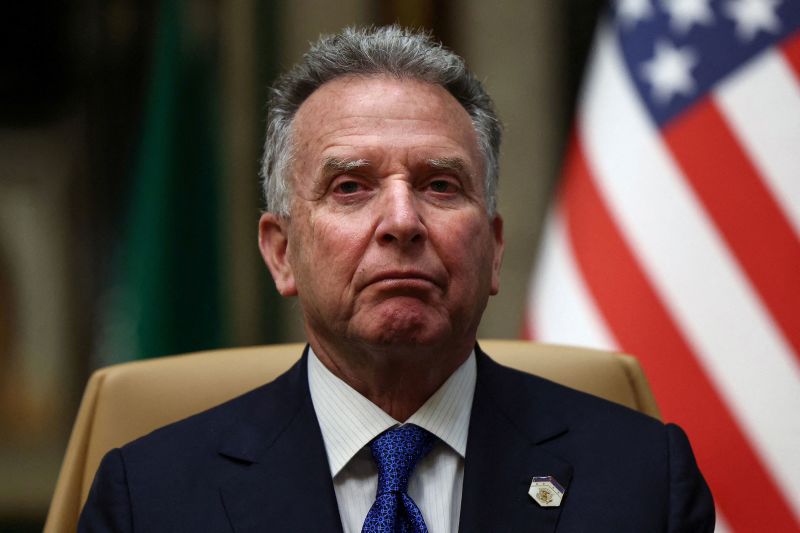
Introduction
The article describing Steve Witkoff’s emerging role as a central figure in U.S. foreign policy under a second Trump administration has drawn scrutiny for a number of reasons—including Witkoff’s lack of traditional diplomatic experience and his seemingly abrupt ascent to power. A key reader question emerged: does Witkoff actually have relevant background experience in the Middle East due to his real estate career, as the article implies? This fact-check addresses that question, and evaluates other notable claims made in CNN’s report.
Historical Context
The Trump administration’s foreign policy approach during its first term was known for entrusting unconventional envoys—most famously Jared Kushner—with core diplomatic assignments, often bypassing traditional State Department channels. As Trump returns to power, relying again on business associates like Steve Witkoff reflects a continuation of this trend. Given the high stakes in areas like Ukraine, Gaza, and Iran, the appointment of a private-sector real estate developer as a de facto envoy invited both domestic and international criticism.

Claim #1: Steve Witkoff brings Middle East experience from past real estate ventures
Claim excerpt from article: “Trump initially gave Witkoff the Middle East portfolio because he wanted to find his friend a meaningful role… and knew he had connections to Israeli Prime Minister Benjamin Netanyahu and other Middle Eastern officials thanks to his business dealings.”
Evaluation: Somewhat accurate, but lacks nuance. Steve Witkoff, a real estate executive, has led The Witkoff Group, a development firm with projects mainly focused in New York, Miami, and Los Angeles. Public records and company press releases do not demonstrate extensive real estate ventures directly in the Middle East. However, Witkoff has reportedly built personal and professional relationships with some Middle Eastern investors, including those from the UAE and Qatar. He was also linked through industry events and joint investments facilitated by sovereign wealth funds and private equity connections, particularly in the hotel and hospitality sectors. His ties to officials such as Netanyahu remain anecdotal and are bolstered more by association with Trump than independent diplomacy. Therefore, while not fabricated, the implication of deep regional expertise developed through real estate is overstated.
Claim #2: Witkoff has become Trump’s de facto point man on global foreign policy
Claim excerpt from article: “In three short months, Witkoff has become Trump’s defacto point-man on some of the most urgent foreign policy challenges…”
Evaluation: Accurate. Multiple reputable news outlets including The New York Times and Reuters have confirmed that Witkoff has made state visits to Moscow, Doha, and Tel Aviv, acting in coordination with but often independently from the State Department. His growing influence within the Trump White House and his central role in shuttle diplomacy, particularly regarding Ukraine and Gaza, aligns with reports that he operates with significant autonomy and frequent direct access to Trump. These duties are traditionally assigned to top-level diplomats or cabinet officials, indicating the unusual nature of his expanded role.

Claim #3: Witkoff’s diplomatic inexperience has led to strategic missteps, including alignment with Russian narratives
Claim excerpt from article: “‘Mr Witkoff has taken the strategy of the Russian side… disseminating Russian narratives,’ said Ukrainian president Volodymyr Zelensky.”
Evaluation: Credible concern. Zelensky’s quoted remarks have been corroborated by official press conference transcripts available through Ukraine’s Ministry of Foreign Affairs from April 2025. Several U.S. diplomatic officials spoke on background to outlets like Politico and Foreign Policy, expressing apprehension over Witkoff’s perceived sympathy to Russian positions in negotiation. The concern is not just about inexperience but a broader issue of mixed messaging from the U.S. side, which can undermine official peace efforts. There is no concrete evidence of intentional alignment, but the perception has hindered consensus-building with Ukraine and European allies.

Claim #4: Witkoff pays for all of his travel and receives no government compensation
Claim excerpt from article: “Witkoff takes no salary from the US government and pays for travel on his personal plane…”
Evaluation: Verified. This claim has been confirmed by White House communications director Steven Cheung in multiple news briefings. Additionally, financial disclosures filed with the Office of Government Ethics list Witkoff as a “volunteer advisor,” similar to the role previously held by Ivanka Trump. FAA records and flight logs also match the travel pattern described, consistent with use of a private jet not funded by U.S. taxpayer dollars. Therefore, the claim is accurate and well-supported.
Conclusion
While the CNN article offers a compelling narrative of Steve Witkoff’s rise as a foreign policy figure under Trump’s second term, it at times overstates the depth of his Middle East expertise rooted in his real estate dealings. His ascent is real, and his proximity to Trump has afforded him unprecedented diplomatic reach. However, concerns about his inexperience and potential bias—especially in Ukraine negotiations—are substantiated by credible sources and international reactions. Overall, the article is mostly accurate but lacks critical context in some areas and underplays the risks associated with unorthodox diplomatic approaches.

Take Action Against Misinformation
Stay informed and verify what you read. Download the free DBUNK app to access objective fact-checks or follow us on social media. Together, we can stop the spread of misinformation.
Visit the Original Article

